Organic Chemistry
Organic Chemistry namely the industry including petrochemical industry using oil, natural gas as raw material, fermentation production of alcohol via food or solvent industry, using gasified feed gas and dry distilled recovered coal tar for production or fractionation of a variety of organic chemical products. In the organic chemical industry of our country, people first apply coal production of calcium carbide for occurrence of acetylene route, gasification synthesis of methanol, formaldehyde route and routes of recycling the benzene, naphthalene, anthracene from coal tar routes, together with alocohol production route from fermentation of rice and further develop.
The direct raw materials of basic organic chemical industry mainly include: hydrogen gas, carbon monoxide, aliphatic hydrocarbons (methane, ethylene, acetylene, propylene, C4 or more aliphatic hydrocarbons), aromatic hydrocarbons (benzene, toluene, xylene and ethylbenzene) and so on. From the pyrolysis gasoline, refinery gas and coal gas of low carbon alkane, crude oil or petroleum distillates, after separation, it may be made of aliphatic hydrocarbon raw material used for different purposes; from the catalytic reforming gasoline, the pyrolysis gasoline of the hydrocarbon and coal tar of dry distillation, we can isolate aromatic raw material; suitable petroleum fractions may also be used directly as the raw material for certain products; from the wet natural gas, we are able to isolate low carbon alkanes other than methane;The conversion or partial oxidation of coal gas, natural gas, refining plant gas, petroleum fraction or the vapor of crude oil fractions can enable the manufacturing of synthetic gas; through the calcium carbide obtained from coke or pyrolysis of natural gas and naphtha, we can prepare acetylene. Additionally, you can also get raw materials from agriculture and forestry by-products.
Organic Chemistry have wide range of applications which can be divided into three areas: First, the raw material for the production of polymer chemical products, namely monomer of polymerization reaction; the second is used for other kinds of organic chemical industry including raw materials of fine chemical products; Third, used for solvents, refrigerants, antifreeze, gas adsorbents. Basic organic chemical industry is the basis for the development of various organic chemical products production and is a main component in the modern industrial structure.
- Structure:

- Chemical Name:4-BROMOBENZYLZINC BROMIDE
- CAS:115055-85-1
- MF:C7H6Br2Zn
- Structure:

- Chemical Name:(R)-2-(tert-butoxycarbonyl)-6-hydroxy-1,2,3,4-tetrahydroisoquinoline-3-carboxylic acid
- CAS:398476-79-4
- MF:C15H19NO5
- Structure:
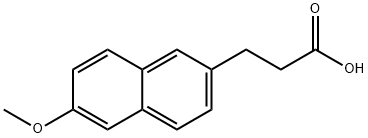
- Chemical Name:3-(6-methoxynaphthalen-2-yl)propanoic acid
- CAS:3453-40-5
- MF:C14H14O3
- Structure:

- Chemical Name:Allenyl Chloromethyl Sulfone
- CAS:126696-78-4
- MF:C4H5ClO2S
- Structure:
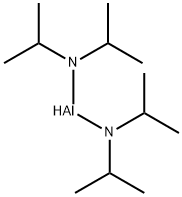
- Chemical Name:Bis(diisopropylamino)aluminum Hydride
- CAS:2826-40-6
- MF:C12H29AlN2
- Structure:
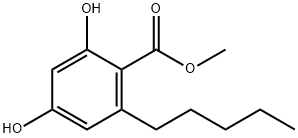
- Chemical Name:methyl 2,4-dihydroxy-6-pentylbenzoate
- CAS:58016-28-7
- MF:C13H18O4
- Structure:

- Chemical Name:5-METHOXYINDAN
- CAS:5111-69-3
- MF:C10H12O
- Structure:
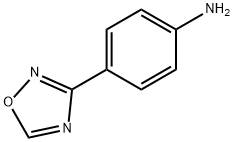
- Chemical Name:4-(1,2,4-oxadiazol-3-yl)Benzenamine
- CAS:59908-70-2
- MF:C8H7N3O
- Structure:

- Chemical Name:tert-butyl 5-aminopentanoate
- CAS:63984-03-2
- MF:C9H19NO2
- Structure:

- Chemical Name:(1-isopropyl-1H-imidazol-4-yl)methanol
- CAS:1315060-18-4
- MF:C7H12N2O
- Chemical Name:MPEGA340
- CAS:
- MF:
- Structure:
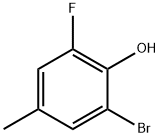
- Chemical Name:2-Bromo-6-fluoro-4-methylphenol
- CAS:1394291-51-0
- MF:C7H6BrFO
- Structure:
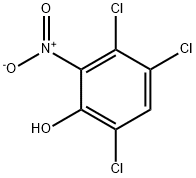
- Chemical Name:3,4,6-TRICHLORO-2-NITROPHENOL
- CAS:82-62-2
- MF:C6H2Cl3NO3
- Structure:
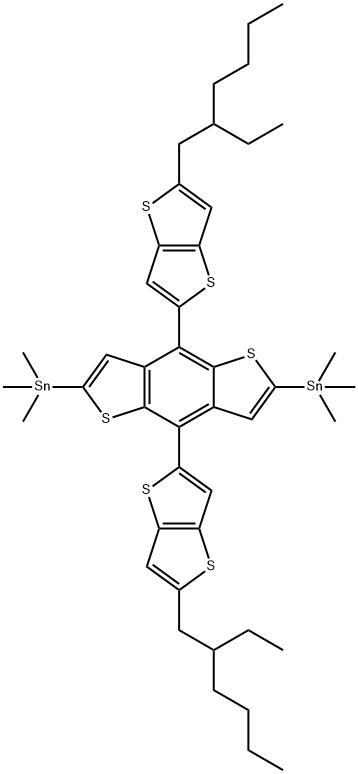
- Chemical Name:Ditrimethyltinethylhexyl-thienothiophene-benzodithiophene
- CAS:1444200-40-1
- MF:C44H58S6Sn2
- Structure:

- Chemical Name:[3-(Trifluoromethyl)-3-buten-1-ynyl]benzene
- CAS:152597-84-7
- MF:C11H7F3
- Structure:
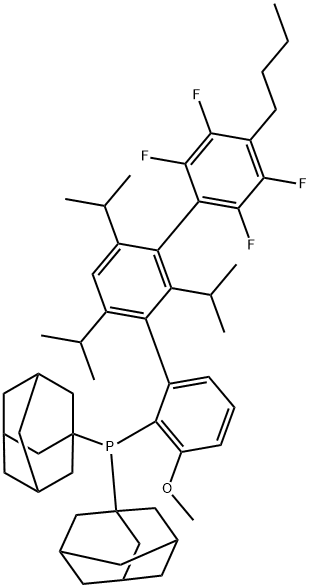
- Chemical Name:AlPhos
- CAS:1805783-60-1
- MF:C52H67F4OP
- Structure:
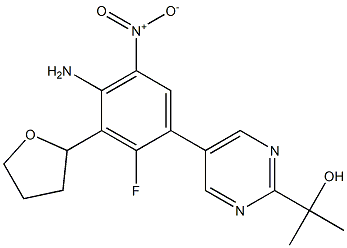
- Chemical Name:2-(5-(4-amino-2-fluoro-5-nitro-3-(tetrahydrofuran-2-yl)phenyl)pyrimidin-2-yl)propan-2-ol
- CAS:1384984-28-4
- MF:C17H19FN4O4
- Structure:
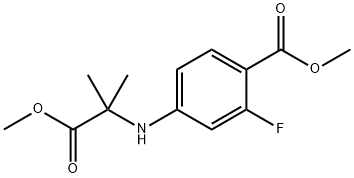
- Chemical Name:methyl 2-fluoro-4-((1-methoxy-2-methyl-1-oxopropan-2-yl)amino)benzoate
- CAS:1802242-47-2
- MF:C13H16FNO4
- Structure:
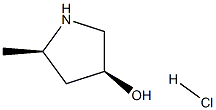
- Chemical Name:(3S,5R)-5-methylpyrrolidin-3-ol hydrochloride
- CAS:1107658-78-5
- MF:C5H12ClNO
- Structure:
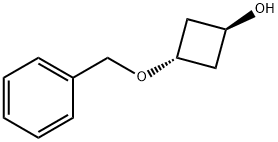
- Chemical Name:trans-3-(benzyloxy)cyclobutanol
- CAS:1383813-54-4
- MF:C11H14O2
- Structure:
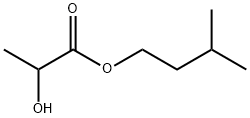
- Chemical Name:Lactic acid isoamyl ester
- CAS:19329-89-6
- MF:C8H16O3
- Structure:
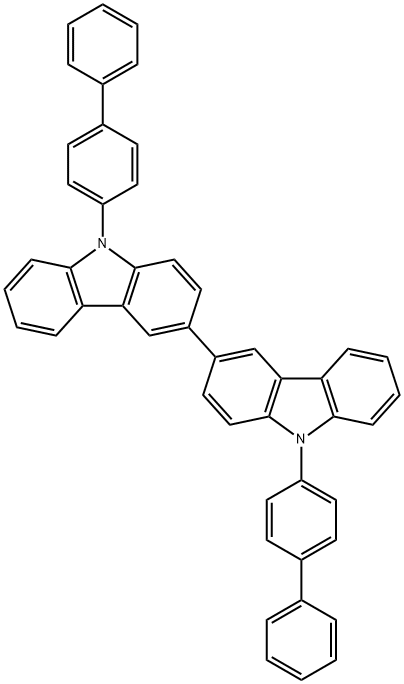
- Chemical Name:9,9'-Bis([1,1'-biphenyl]-4-yl)-3,3'-bi-9H-carbazole
- CAS:57102-51-9
- MF:C48H32N2
- Structure:
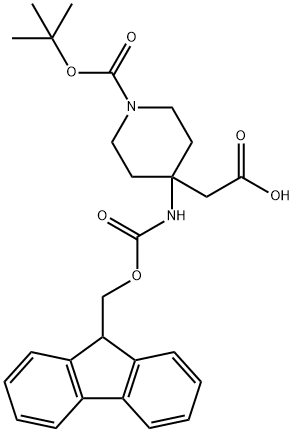
- Chemical Name:(4-Aminopiperidin-4-yl)aceticacid,N1-BOC4-FMOCprotected
- CAS:946682-26-4
- MF:C27H32N2O6
- Chemical Name:8-Arm PEG-Acrylate
- CAS:
- MF:
- Structure:

- Chemical Name:3-BROMO-3-METHYLPENTANE
- CAS:25346-31-0
- MF:C6H13Br
- Structure:

- Chemical Name:1-(4-METHYL-2-(METHYLTHIO)PYRIMIDIN-5-YL)ETHANONE
- CAS:66373-26-0
- MF:C8H10N2OS
- Structure:

- Chemical Name:BUTYL CAPRYLATE
- CAS:589-75-3
- MF:C12H24O2
- Structure:
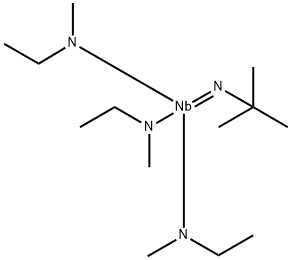
- Chemical Name:(t-Butylimido)tris(methylethylamino)niobium, 98%
- CAS:864150-47-0
- MF:C13H33N4Nb
- Structure:
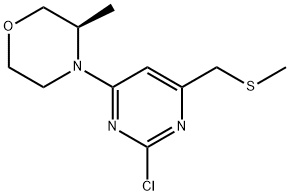
- Chemical Name:(R)-4-(2-chloro-6-(methylthiomethyl)pyrimidin-4-yl)-3-methylmorpholine
- CAS:1352227-15-6
- MF:C11H16ClN3OS
- Structure:

- Chemical Name:(1-Methylcyclopropyl)methanamine hydrochloride
- CAS:1260779-19-8
- MF:C5H12ClN
- Structure:
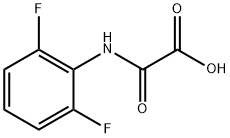
- Chemical Name:2,6-Difluoroanilino(oxo)acetic acid
- CAS:1018295-42-5
- MF:C8H5F2NO3
- Structure:
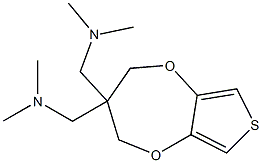
- Chemical Name:1,1'-(3,4-Dihydro-2H-thieno[3,4-b][1,4]dioxepine-3,3-diyl)bis(N,N-dimethylmethanamine)
- CAS:
- MF:C13H22N2O2S
- Structure:

- Chemical Name:Cyclopropylmethyl Magnesium Bromide
- CAS:4619-93-6
- MF:C4H7BrMg
- Structure:
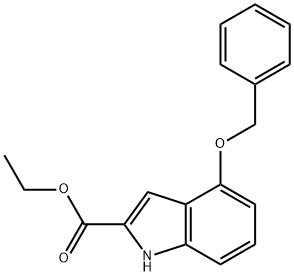
- Chemical Name:4-BENZYLOXYINDOLE-2-CARBOXYLIC ACID ETHYL ESTER
- CAS:27737-55-9
- MF:C18H17NO3
- Structure:

- Chemical Name:1-Piperidinepropanol, α-(4-hydroxyphenyl)-β-methyl-4-(phenylmethyl)-, [S-(R*,S*)]-
- CAS:169274-81-1
- MF:C22H29NO2
- Structure:
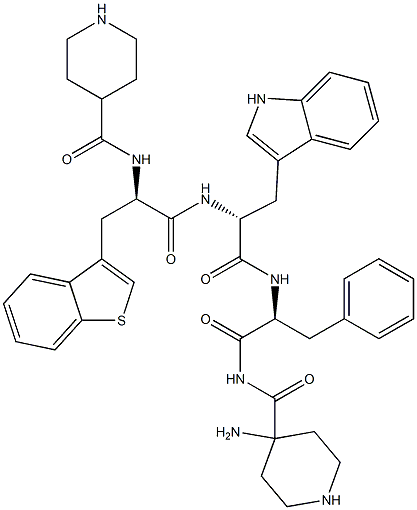
- Chemical Name:Relamorelin
- CAS:661472-41-9
- MF:C43H50N8O5S
- Structure:

- Chemical Name:(+)-Biotin-PEG4-Hydrazide
- CAS:756525-97-0
- MF:C21H39N5O7S
- Structure:

- Chemical Name:methyl 4-(5-chloro-2-(isopropylamino)pyridin-4-yl)-1-tosyl-1H-pyrrole-2-carboxylate
- CAS:869886-88-4
- MF:C21H22ClN3O4S
- Structure:

- Chemical Name:(4-Iodo-1-methyl-1H-pyrazol-3-yl)-methanol
- CAS:1401816-91-8
- MF:C5H7IN2O
- Structure:
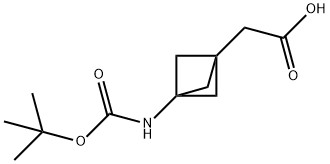
- Chemical Name:2-(3-((tert-butoxycarbonyl)amino)bicyclo[1.1.1]pentan-1-yl)acetic acid
- CAS:2096992-27-5
- MF:C12H19NO4
- Structure:
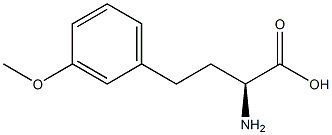
- Chemical Name:(S)-2-Amino-4-(3-methoxyphenyl)butanoic acid
- CAS:1260611-13-9
- MF:C11H15NO3
- Structure:

- Chemical Name:1-(3-Methylphenyl)cyclopropanemethanol
- CAS:886366-44-5
- MF:C11H14O
- Structure:
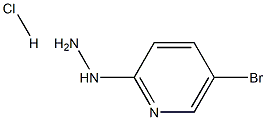
- Chemical Name:5-bromo-2-hydrazinylpyridine hydrochloride
- CAS:1295647-30-1
- MF:C5H7BrClN3
- Structure:

- Chemical Name:Acid-PEG4-mono-methyl ester
- CAS:2028284-75-3
- MF:C13H24O8
- Chemical Name:m-PEG23-alcohol
- CAS:
- MF:
- Structure:

- Chemical Name:Dimethylamine tetrahydrofuran
- CAS:
- MF:C6H13NO
- Structure:
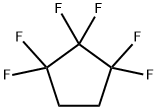
- Chemical Name:1,1,2,2,3,3-Hexafluorocyclopentane
- CAS:123768-18-3
- MF:C5H4F6
- Structure:
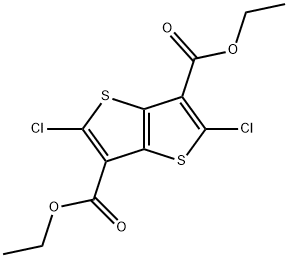
- Chemical Name:2,5-Dichloro-thieno[3,2-b]thiophene-3,6-dicarboxylic acid diethyl ester
- CAS:1268375-33-2
- MF:C12H10Cl2O4S2
- Structure:

- Chemical Name:4,5-bis(dodecyloxy)benzene-1,2-diamine
- CAS:190435-62-2
- MF:C30H56N2O2
- Structure:
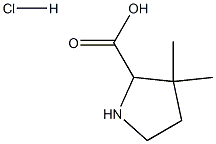
- Chemical Name:3,3-DIMETHYLPYRROLIDINE-2-CARBOXYLIC ACID hydrochloride
- CAS:61406-78-8
- MF:C7H14ClNO2
- Structure:
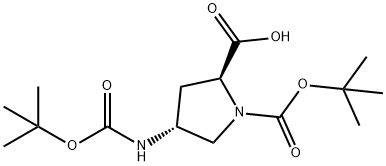
- Chemical Name:(4R)-1-Boc-4-(Boc-amino)-L-proline
- CAS:254881-66-8
- MF:C15H26N2O6
- Structure:
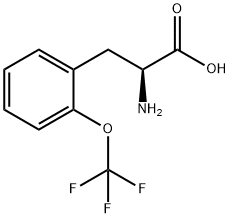
- Chemical Name:2-(Trifluoromethoxy)-L-phenylalanine
- CAS:1103894-71-8
- MF:C10H10F3NO3
- Structure:
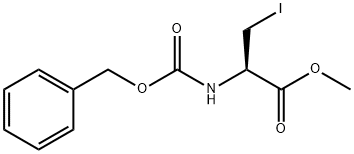
- Chemical Name:3-Iodo-N-Cbz-L-alanine methyl ester
- CAS:56877-38-4
- MF:C12H14INO4
- Structure:

- Chemical Name:3-Iodo-N-Cbz-L-alanine methyl ester
- CAS:56877-38-4
- MF:C12H14INO4
- Structure:
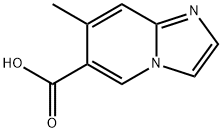
- Chemical Name:IMidazo[1,2-a]pyridine-6-carboxylic acid, 7-Methyl-
- CAS:1312556-65-2
- MF:C9H8N2O2
- Structure:
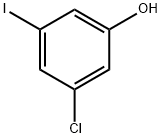
- Chemical Name:3-chloro-5-iodophenol
- CAS:861347-86-6
- MF:C6H4ClIO
- Structure:
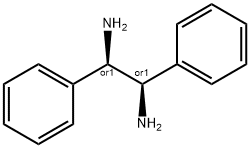
- Chemical Name:1,2-Diphenylethylenediamine
- CAS:16635-95-3
- MF:C14H16N2
- Structure:

- Chemical Name:2-CHLORO-1-(4-CHLORO-PHENYL)-ETHANOL
- CAS:6378-66-1
- MF:C8H8Cl2O
- Structure:
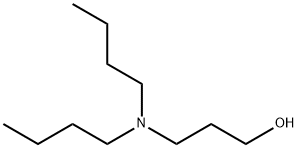
- Chemical Name:3-(DIBUTYLAMINO)-1-PROPANOL
- CAS:2050-51-3
- MF:C11H25NO
- Structure:

- Chemical Name:N-Benzyl-3-aminopropan-1-ol
- CAS:4720-29-0
- MF:C10H15NO
- Structure:

- Chemical Name:Ethyl-N-methyl malonamide
- CAS:71510-95-7
- MF:C6H11NO3
- Structure:

- Chemical Name:AKOS B019512
- CAS:5775-82-6
- MF:C5H7BrN2
- Structure:
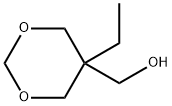
- Chemical Name:5-Ethyl-1,3-dioxane-5-methanol
- CAS:5187-23-5
- MF:C7H14O3
- Structure:

- Chemical Name:4-BROMO-3-IODOANISOLE
- CAS:4897-68-1
- MF:C7H6BrIO
- Structure:
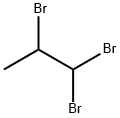
- Chemical Name:1,1,2-TRIBROMOPROPANE
- CAS:14602-62-1
- MF:C3H5Br3
- Structure:
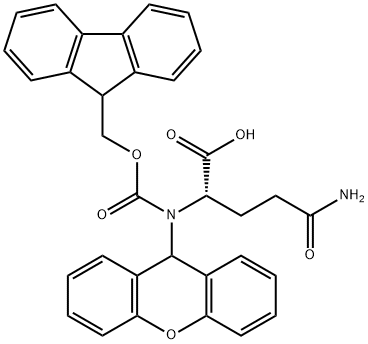
- Chemical Name:FMOC-GLN(XAN)-OH
- CAS:185031-81-6
- MF:C33H28N2O6
- Structure:

- Chemical Name:2,5-BIS(CHLOROMETHYL)-P-XYLENE
- CAS:6298-72-2
- MF:C10H12Cl2
- Structure:
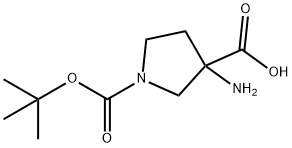
- Chemical Name:3-AMINO-PYRROLIDINE-1,3-DICARBOXYLIC ACID 1-TERT-BUTYL ESTER
- CAS:862372-66-5
- MF:C10H18N2O4
- Structure:

- Chemical Name:2-AMINO-4-BROMOBENZALDEHYDE
- CAS:59278-65-8
- MF:C7H6BrNO
- Structure:

- Chemical Name:2,3,4,6-TETRAFLUOROBENZYLAMINE HYDROCHLORIDE
- CAS:1078610-94-2
- MF:C7H6ClF4N
- Structure:

- Chemical Name:4-BROMO-2-METHYLANILINE HYDROCHLORIDE
- CAS:13194-70-2
- MF:C7H9BrClN
- Structure:
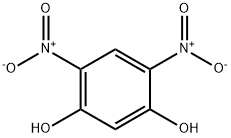
- Chemical Name:4,6-DINITRORESORCINOL
- CAS:616-74-0
- MF:C6H4N2O6
- Structure:

- Chemical Name:DL-CAMPHORIC ACID
- CAS:560-05-4
- MF:C10H16O4
- Structure:

- Chemical Name:3-METHOXYPHENETHYL ALCOHOL
- CAS:5020-41-7
- MF:C9H12O2
- Structure:
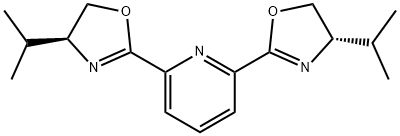
- Chemical Name:(S,S)-2,6-BIS(4-ISOPROPYL-2-OXAZOLIN-2-YL)PYRIDINE
- CAS:118949-61-4
- MF:C17H23N3O2
- Structure:
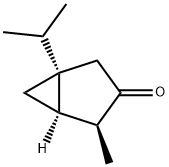
- Chemical Name:THUJONE
- CAS:471-15-8
- MF:C10H16O
- Structure:
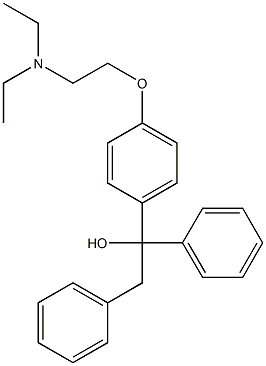
- Chemical Name:1-[4-(2-diethylaminoethoxy)phenyl]-1,2-di(phenyl)ethanol
- CAS:
- MF:C26H31NO2
- Structure:
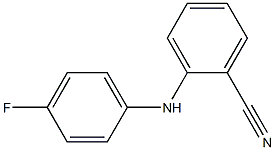
- Chemical Name:2-[(4-fluorophenyl)amino]-benzonitrile
- CAS:
- MF:C13H9FN2
- Chemical Name:Α- methacrylate group -Ω- maleimide polyglycol
- CAS:
- MF:
- Structure:

- Chemical Name:6-CHLORO-4-NITRO-1H-INDAZOLE
- CAS:885519-50-6
- MF:C7H4ClN3O2
- Structure:

- Chemical Name:3-tert-Butoxycarbonylphenylboronic acid
- CAS:220210-56-0
- MF:C11H15BO4
- Structure:
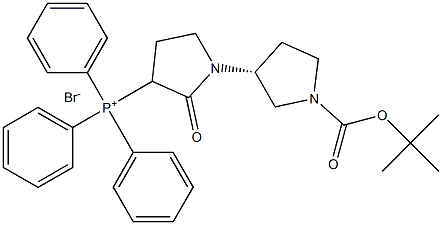
- Chemical Name:Phosphonium, [(3'R)-1'-[(1,1-dimethylethoxy)carbonyl]-2-oxo[1,3'-bipyrrolidin]-3-yl]triphenyl-, bromide
- CAS:376653-42-8
- MF:C31H36BrN2O3P
- Structure:

- Chemical Name:(2-Iodo-3-methyl-phenyl)-methanol
- CAS:100959-88-4
- MF:C8H9IO
- Structure:
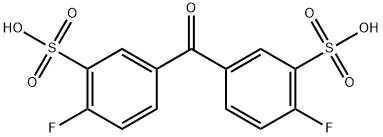
- Chemical Name:4,4'-Difluorodiphenylketone-3,3'-disulfonic acid
- CAS:625392-06-5
- MF:C13H8F2O7S2
- Structure:
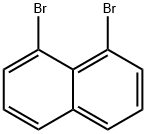
- Chemical Name:1,8-Dibromonaphthalene
- CAS:17135-74-9
- MF:C10H6Br2
- Structure:
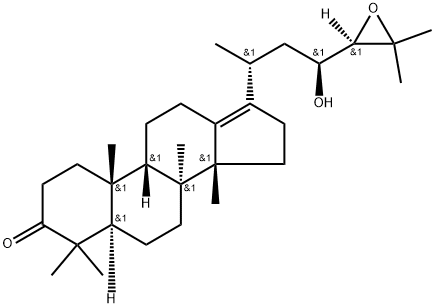
- Chemical Name:11-Deoxyalisol B
- CAS:155073-73-7
- MF:C30H48O3
- Structure:

- Chemical Name:trans-4-Methoxycyclohexanol
- CAS:22188-03-0
- MF:C7H14O2
- Structure:
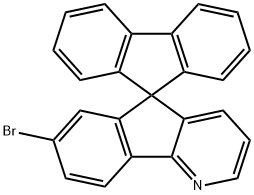
- Chemical Name:7'-brmomspiro[fluorene-9,5'-indeno[1,2-b]pyridine]
- CAS:1666128-76-2
- MF:C24H14BrN
- Structure:
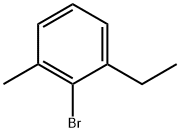
- Chemical Name:1-Bromo-2-ethyl-6-methylbenzene
- CAS:65232-55-5
- MF:C9H11Br
- Structure:
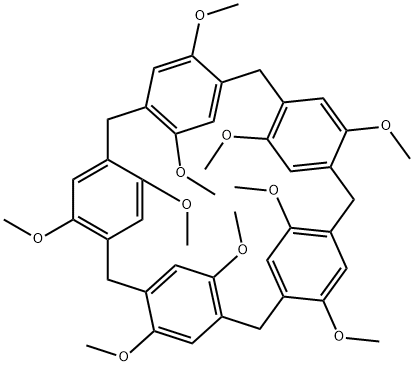
- Chemical Name:Dimethoxypillar[5]arene
- CAS:1188423-16-6
- MF:C45H50O10
- Structure:
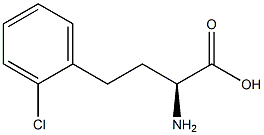
- Chemical Name:(S)-a-Amino-2-chloro-benzenebutanoic acid
- CAS:1260611-09-3
- MF:C10H12ClNO2
- Structure:
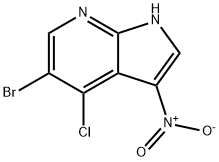
- Chemical Name:5-bromo-4-chloro-3-nitro-1H-pyrrolo[2,3-b]pyridine
- CAS:1477532-48-1
- MF:C7H3BrClN3O2
- Structure:
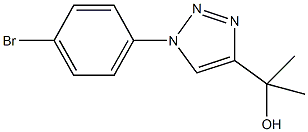
- Chemical Name:2-(1-(4-Bromophenyl)-1H-1,2,3-triazol-4-yl)propan-2-ol
- CAS:1000339-34-3
- MF:C11H12BrN3O
- Structure:
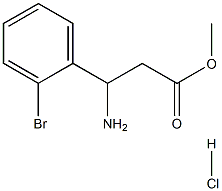
- Chemical Name:Methyl 3-amino-3-(2-bromophenyl)propanoate HCl
- CAS:1038338-40-7
- MF:C10H12BrNO2
- Structure:

- Chemical Name:Methyl 3-amino-3-(2-bromophenyl)propanoate HCl
- CAS:1038338-40-7
- MF:C10H12BrNO2
- Structure:
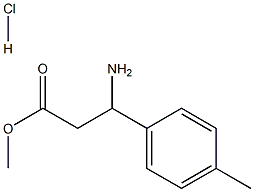
- Chemical Name:Methyl 3-amino-3-(p-tolyl)propanoate HCl
- CAS:101207-50-5
- MF:C11H16ClNO2
- Structure:

- Chemical Name:Methyl 3-amino-3-(p-tolyl)propanoate HCl
- CAS:101207-50-5
- MF:C11H16ClNO2
- Structure:
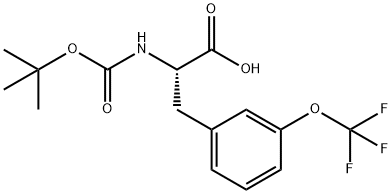
- Chemical Name:N-Boc-3-trifluoromethoxy-L-phenylalanine
- CAS:1212864-57-7
- MF:C15H18F3NO5
- Structure:
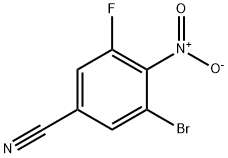
- Chemical Name:3-Bromo-5-fluoro-4-nitrobenzonitrile
- CAS:1310918-28-5
- MF:C7H2BrFN2O2
- Structure:
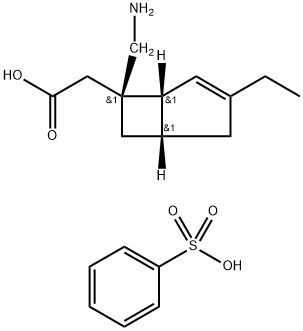
- Chemical Name:Mirogabalin besylate
- CAS:1138245-21-2
- MF:C18H25NO5S